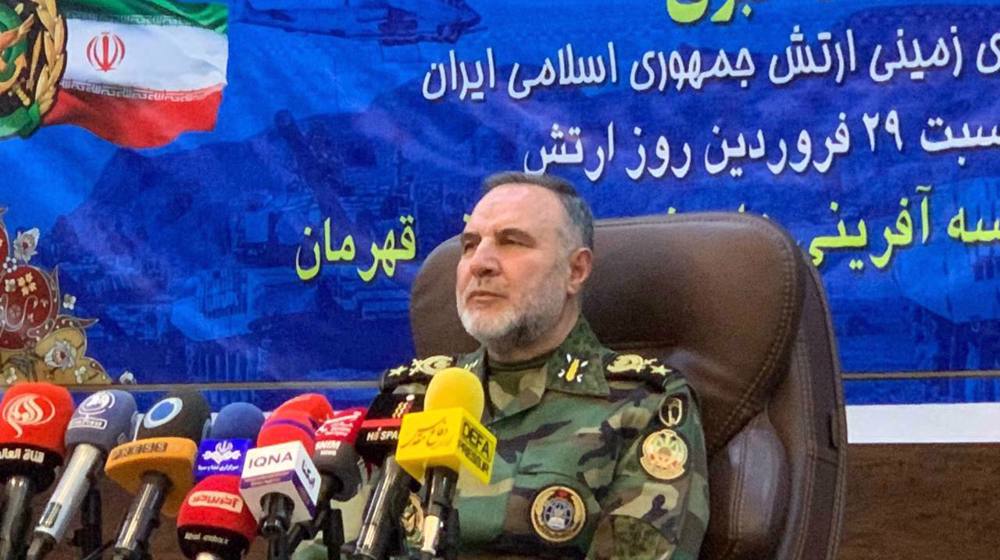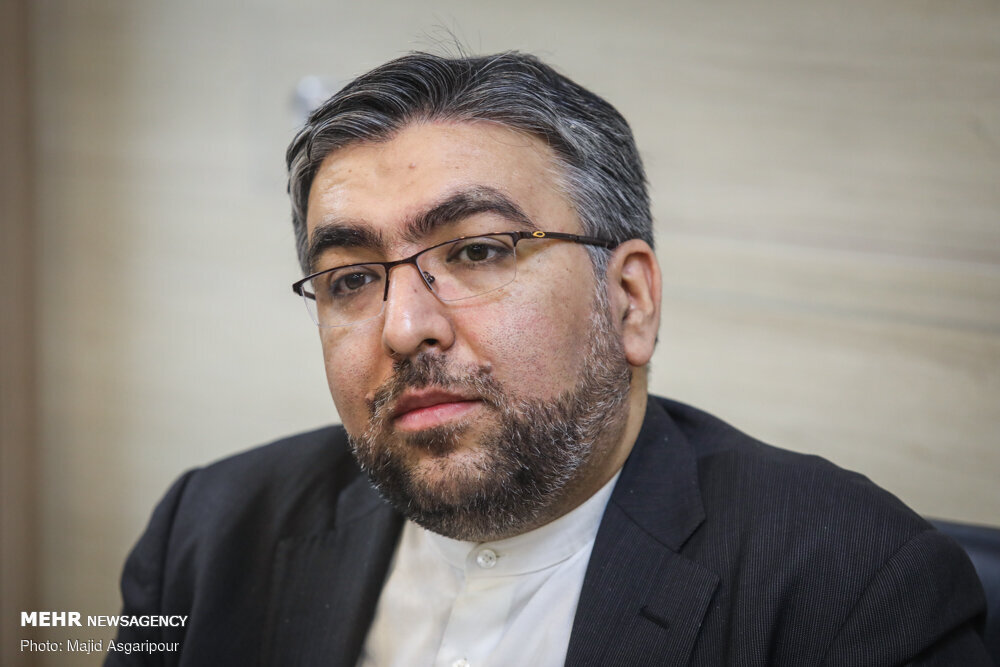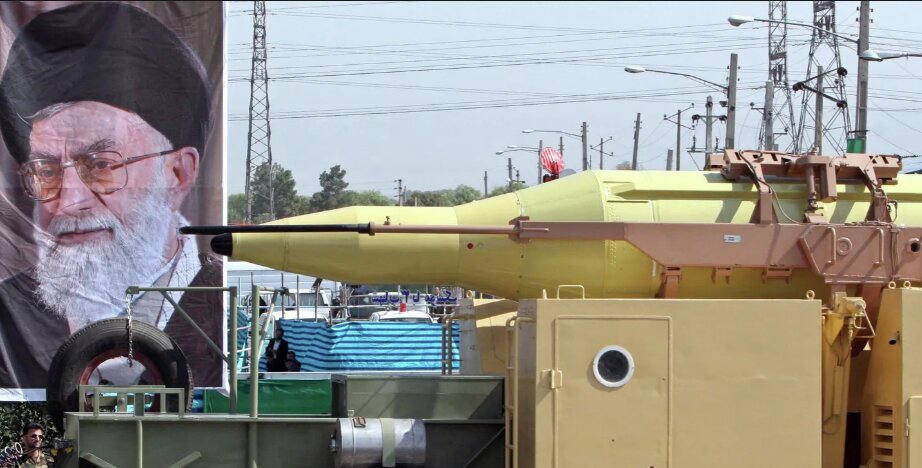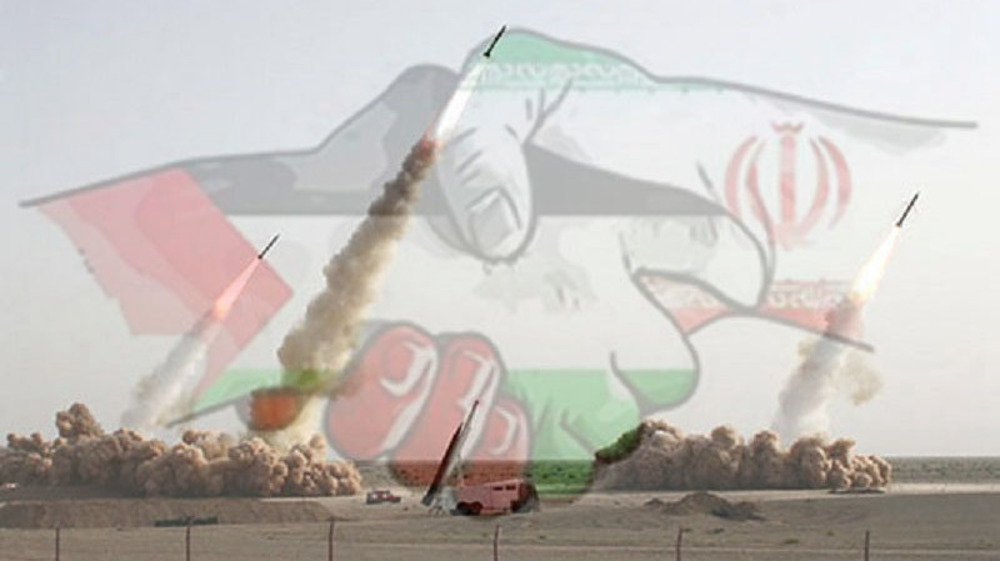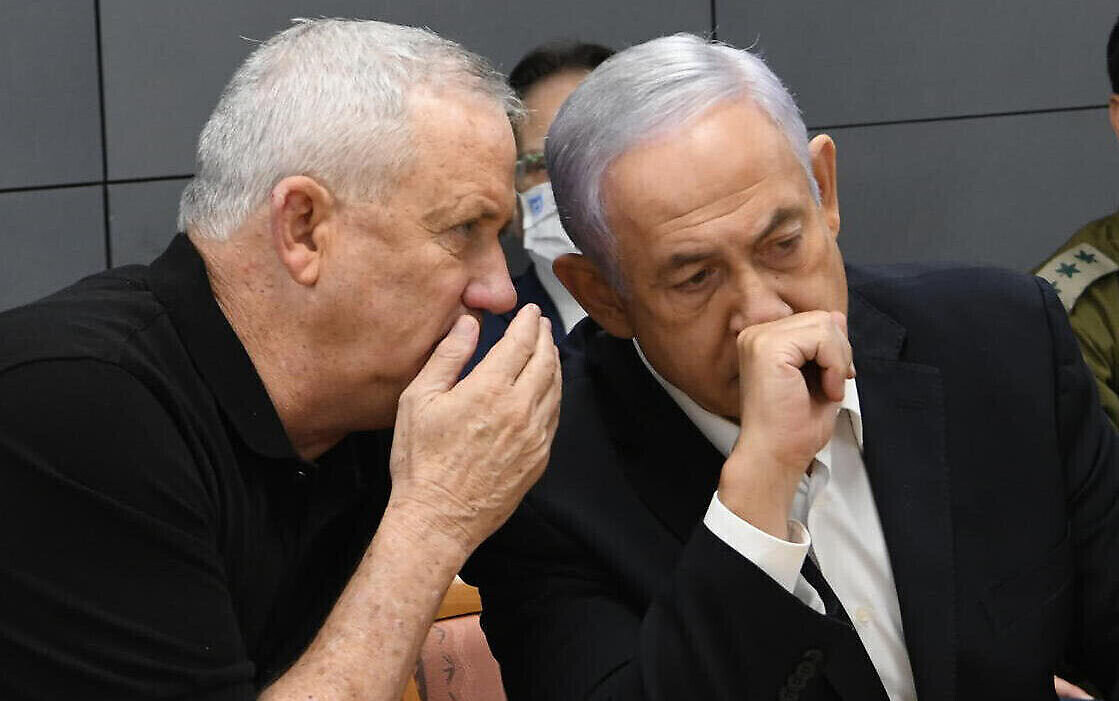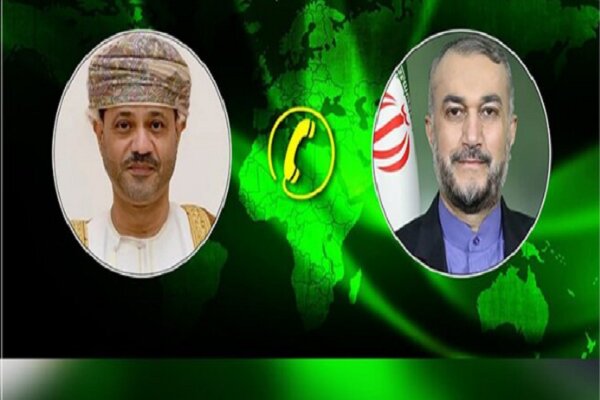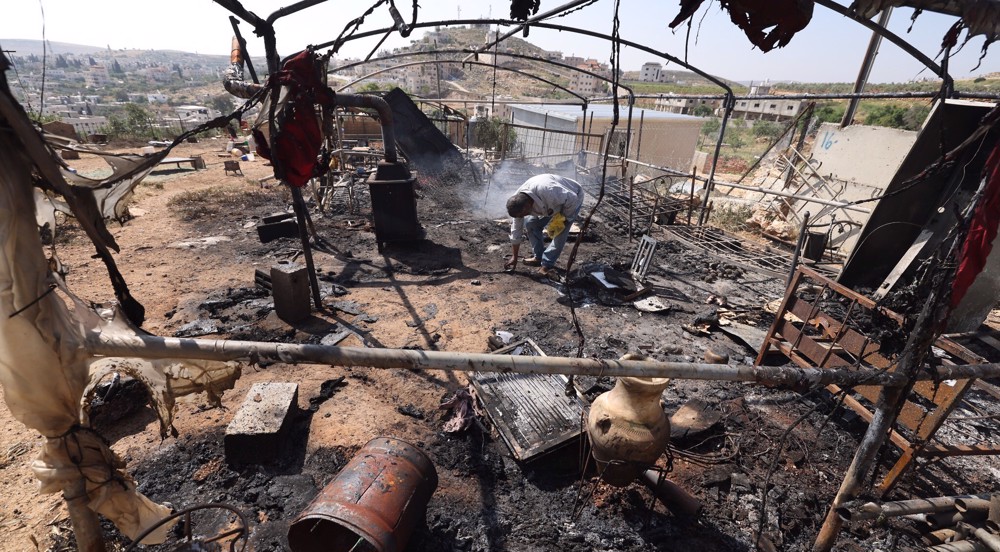Commander of the Iranian Army’s Ground Force Brigadier General Kioumars Haydari says Iran’s retaliatory operation against Israel has further dispelled the threadbare myth that the wicked and child-killing Tel Aviv regime is unbeatable.
Haydari stated on Tuesday that the successful launch of hundreds of missiles and drones at the occupied territories in retaliation for the Israeli regime’s April 1 terrorist strike on the Islamic Republic’s consulate in Syria was a severe and crushing response to the notorious Zionist regime.
He emphasized that the destruction of Israeli military bases falls within the framework of Tehran’s success in countering and neutralizing the financial, logistical and intellectual support of the criminal US administration and its allies in West Asia and across the globe.
“The Iranian Armed Forces can now confront any type of threats and nip any threat in the bud, thanks to constant vigilance and watchfulness… The courageous and decisive action of the Armed Forces of the Islamic Republic of Iran melted the hearts of millions of freedom-loving Muslims, grief-stricken Gazans and fighters from resistance factions, and lived up to the divine promise about the victory of truth over falsehood,” the Iranian Army’s Ground Force chief pointed out.
Haydari further highlighted that the Iranian retaliatory attack targeted the most strategic base and surveillance site of the Israeli military at the Jabal al-Sheikh Heights on the border between occupied Palestinian territories and Syria.
“The strike on that base and Nevatim Airbase, which accommodates the Zionist regime’s strategic logistics, delivered a crushing blow to the Zionist regime’s decision-making and deterrence power,” the high-profile Iranian military figure stated.
Haydari underscored that the deterrence power and combat preparedness of the Islamic Republic of Iran’s Armed Forces have warded off any act of aggression against the country, stating that the recent retaliatory attack against Israel showcased a fraction of Iran’s military might and made the Israeli army taste a great defeat.
“A much severe response awaits the Zionist regime’s forces if they commit another strategic mistake,” he stressed.
‘Israel will get stronger response in case of new aggression’
Separately, Haydari said at a news briefing in Tehran on the occasion of the National Army Day, which is celebrated annually on April 18, that the Tel Aviv regime will receive a much stronger response if it opts to carry out a new act of aggression against Iran.
He stated that Iranian Armed Forces are now at the apex of their combat preparedness, and that the Israeli regime must know that he have created a new equation and will response to their vicious bids.
“Armed Forces decisively responded to the nation’s request. Our forces proved that the Zionist regime is weaker than a spider’s web,” Haydari stated.

